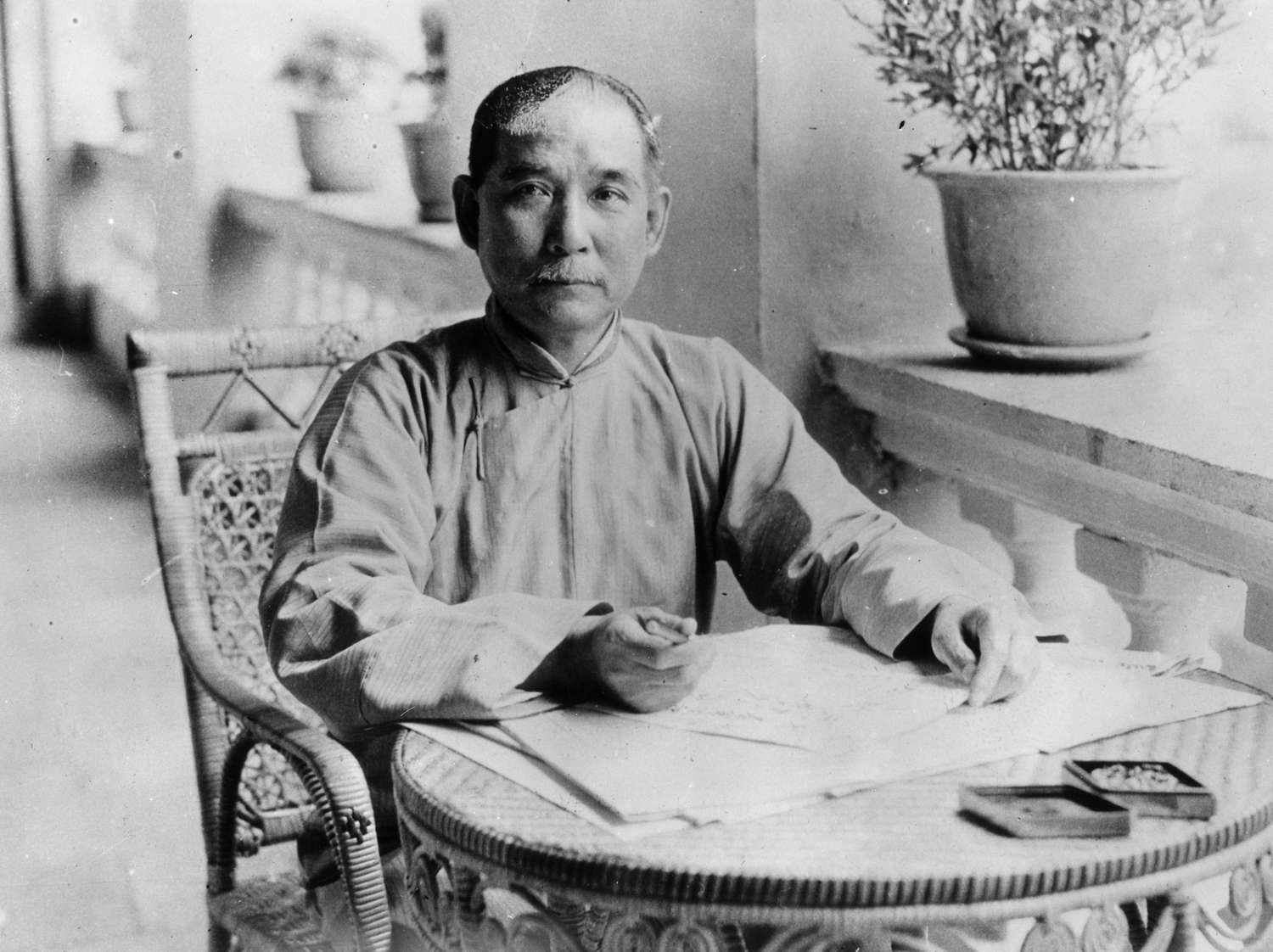Published: November 10,2023
By Staff writer

Photo of Dr. Sun Yat-Sen. Credit Topical Press Agency / Getty Images
“My heart cannot evade the arrow of the God of Love.
“A great storm is sweeping over my homeland in the darkness.
“I place my hope in the cold stars, but they do not understand me.
“I offer my heart’s blood to my dear homeland”- Lu Xun
When the Chinese great writer, Lu Xun, then studying in Japan wrote the above poem in 1902, it typified the desperation of the Chinese people, the desolation of their nation and reflected the grief of a people who have had to endure a century of humiliation after having created one of mankind’s most magnificent ancient civilizations.
Form the middle of the 19th century, China plunged into terrible sufferings and humiliation under the yoke of the combined oppression of foreign capitalists and imperialist powers and domestic feudal forces. Confronted with the aggression by western powers, the feudal and autocratic Qing dynasty which has reigned in China for two centuries was impotent to defend the country.
Rather, the decomposing and weak regime suppressed all national trends towards political and social progress and instead allowed the imperialist powers to carve up, the country at will.
China was deprived its sovereignty and its key economic lifelines were in the hands of foreigners. The Qing regime at its final stage was treacherous, corrupt and was thoroughly detested by the Chinese people. Because of its weakness; it strangled the country, sapped if of vitality and kept its people in misery.
The Chinese people actually entered the 20th century with the national humiliation of witnessing their capital city Beijing occupied by the Eight-power allied forces sent by British, the United States of America, Germany, France, Russia, Japan, Italy and Australia. The situation of the Chinese nation then, seemed to have put up it on the verge of extinction. The source of the suffering of the Chinese nation and the misery of its people was the double oppression of imperialism and feudalism.
The combined forces of these two renegade tendencies were what hindered all social progress and political development of the country. And the key questions that Chinese progressives at the time pondered were, how could the country combat foreign aggression and win national independence? How could it be extricated from the darkness and ignorance perpetuated by the lame feudal, autocratic regime, colluding and submissive to imperialism. How the country could be lifted out of poverty and backwardness and made strong and prosperous. And how would it be transformed from its status, then, of a semi-colonial and semi-feudal society?
Some considerable number of brave Chinese men and women devoted themselves to the cause of the country’s national progress before the founding of the Communist Party. In the overall, the nation has never been quite in the face of the darkening clouds over it, perpetuated by treacherous decomposing oligarchy and rampaging imperialism.
Nonetheless, the repeated struggles the wars of resistance, against foreign aggression, the peasant’s revolution of the Taiping Heavenly kingdom of the 19th century, Reform movement of 1891 which has sought to use the authority of the emperor to advance reform and the Boxer uprising at the turn of the 20th century, which started from the lower strata of society and developed into a large-scale anti-imperialist patriotic movement, have all ended in failure.
Of course several key factors in these efforts to revive the Chinese nation regretted that their lofty ideals ended in failures. However, despite failures, the wheel of history continues to roll on, throwing new developments. As the national crisis escalated and new social forces began to emerge, especially as the incipient modern capitalist industry began to grow; a new revolutionary movement came to the fore under the leadership of Dr. Sun Yat-Sen, a well-known Chinese patriot and a great democrat. At the establishment of his modest revolutionary group in Honolulu, in the United States in 1894, he issued a clarion call for the “revival of China,” and in 1905, he sponsored the founding of the Chinese Revolutionary league, which put forward a comprehensive political program for the establishment of a bourgeois democratic republic. Dr. Sun worked assiduously through revolutionary means to realize the program and pledged “to drive out Tartars, revive the Chinese nation, establish a Republic and equalize ownership of land.” The immediate objective of DR. Sun’s league was to overthrow the Qing dynasty, which has already become a tool of imperialists’ power for the domination of China. Clearly, the Dr. Sun Yat-Sen revolutionary agenda was boldly anti-imperialist but limited to the overthrow of the feudal monarchy that has reigned in China for two thousand years.
Book Review: A century of the Communist Party of China by Charles Onunaiju.
 Africa -China Review Africa -China Cooperation and Transformation
Africa -China Review Africa -China Cooperation and Transformation
